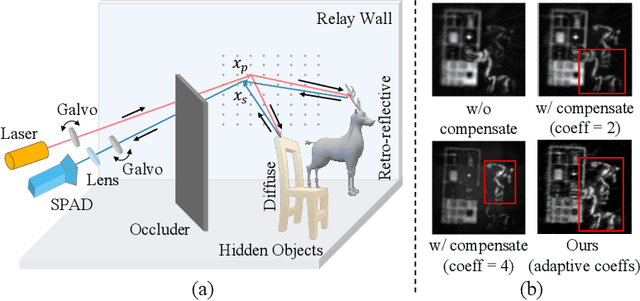Generalizable Non-Line-of-Sight Imaging with Learnable Physical Priors
Paper and Code
Sep 21, 2024



Non-line-of-sight (NLOS) imaging, recovering the hidden volume from indirect reflections, has attracted increasing attention due to its potential applications. Despite promising results, existing NLOS reconstruction approaches are constrained by the reliance on empirical physical priors, e.g., single fixed path compensation. Moreover, these approaches still possess limited generalization ability, particularly when dealing with scenes at a low signal-to-noise ratio (SNR). To overcome the above problems, we introduce a novel learning-based solution, comprising two key designs: Learnable Path Compensation (LPC) and Adaptive Phasor Field (APF). The LPC applies tailored path compensation coefficients to adapt to different objects in the scene, effectively reducing light wave attenuation, especially in distant regions. Meanwhile, the APF learns the precise Gaussian window of the illumination function for the phasor field, dynamically selecting the relevant spectrum band of the transient measurement. Experimental validations demonstrate that our proposed approach, only trained on synthetic data, exhibits the capability to seamlessly generalize across various real-world datasets captured by different imaging systems and characterized by low SNRs.
 Add to Chrome
Add to Chrome Add to Firefox
Add to Firefox Add to Edge
Add to Edge